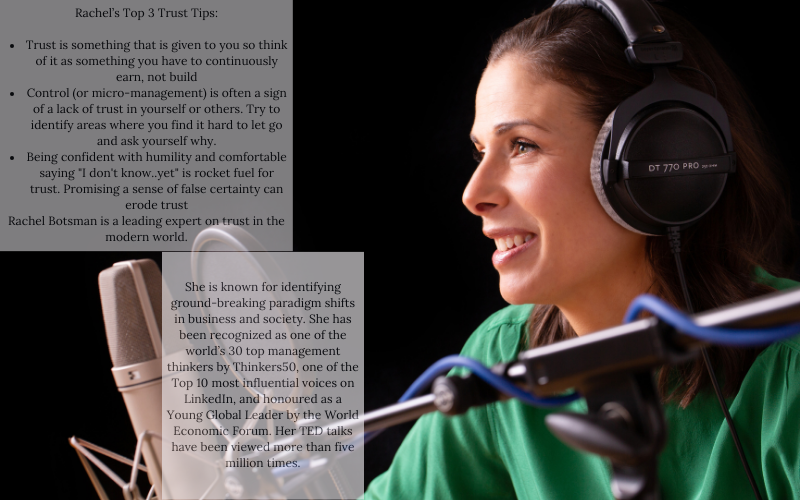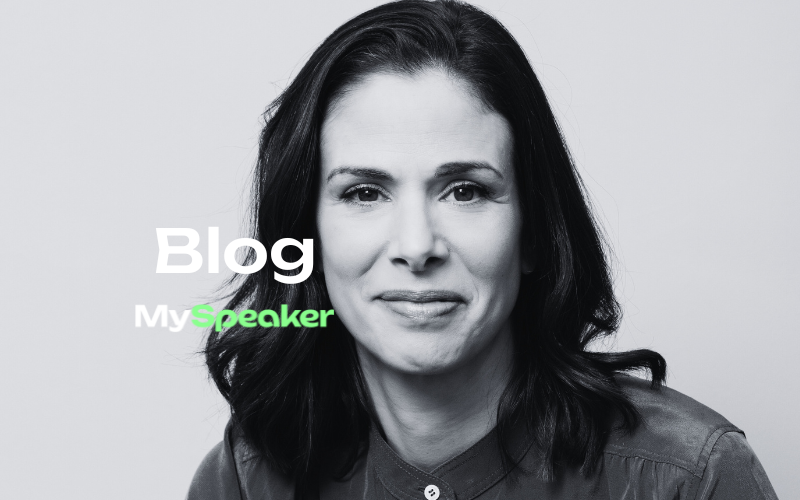
Trust is the cornerstone upon which every successful leadership journey is built. It is the intangible yet invaluable currency that fuels collaboration, inspires loyalty, and propels organizations to greatness. Trust is not merely a desirable attribute; it is the bedrock of effective leadership. It’s the belief that a leader will act with integrity, competence, and genuine care for their team and the organization’s mission. To get expert insight on this critical leadership topic, we asked from the leading expert on trust in the modern world, Rachel Botsman.
Is trust one of the essential elements that every leader should strive for in today’s uncertain world? What are the consequences of a lack of trust?
The way I define trust is a ‘confident relationship with the unknown’. If you know how things will turn out or if there is little risk, very little trust is required. But the greater the uncertainty, the more trust you need. That’s why trust is so essential in today’s world. Without trust, you can’t innovate, you can’t take risks and it’s hard to make any kinds of changes.
A complete lack of trust is a downward spiral that leads to 3D’s- defensiveness, disengagement and eventually disenchantment. Leaders might recognize these phases with people in their teams.
“Trust is a confident relationship with the unknown.”
Do you think the arrival of Gen Z in business has brought a whole new level of required trust to both businesses and society?
Yes, but I don’t think Gen Z trust less but trusts differently. Many leaders developed their careers in workplaces where trust was, for the most part, ‘institutional’ – top-down, hierarchal with clear rules. Work had fixed boundaries around hours, physical locations, and roles. Importantly, these boundaries were mostly set by the employer, not the employee. But this type of trust makes little sense to Gen Z; it’s not relevant to how they think about value, power or relationships. Much of their lives has been shaped by what I call ‘distributed trust’ – collaborative, decentralized and peer-driven. Distributed trust is at the heart of Gen Z’s life – from how they consume information, make decisions, express themselves and purchase things. And it’s at the heart of hybrid working. At the heart of many cultural challenges in organizations is navigating a shift from institutional to distributed trust.

What do you believe are some of the qualities that make leaders truly trustworthy?
It’s incredible to consider that most leaders are never taught what makes people trustworthy. The good news is there is a proven way to learn how to be a more trustworthy person. The answers lie in a framework known as the ‘traits of trustworthiness.’ It’s made up of two sides parts – capability and character.
- Capability traits are about how we do things.
- Character traits are about why we do things.
Or I like to think of it as doing things and doing the right things.
On the capability side, the most important traits are competence and reliability. On the character side, the most important traits are empathy and integrity.
“We often make bad trust decisions because we overly rely on intuition – we tune into signals we want to see.”
How can you personally spot the people you can trust?
We often make bad trust decisions because we overly rely on intuition – we tune into signals we want to see. So you can’t ‘spot’ people you can trust. Good trust decisions take time and require information on a person’s capability and character. The two other mistakes people make are giving their trust to people who feel familiar or who are confident but not necessarily competent. You could say, more glitter than glue!
Does the idea of “Trust in the workplace” carry a different meaning in 2023 compared to, let’s say, back in 2015?
Trust has always been the social glue in the workplace. It’s essentially for meaningful connection, collaboration and creativity. But hybrid working requires a whole new level of trust. Trusting people to make the right decisions about where to work. Trust people to get on with things in their own time and ways. Most employees want greater empowerment and autonomy – that comes with nurturing more trust in the workplace.
Read more about us on: https://myspeaker.com/

